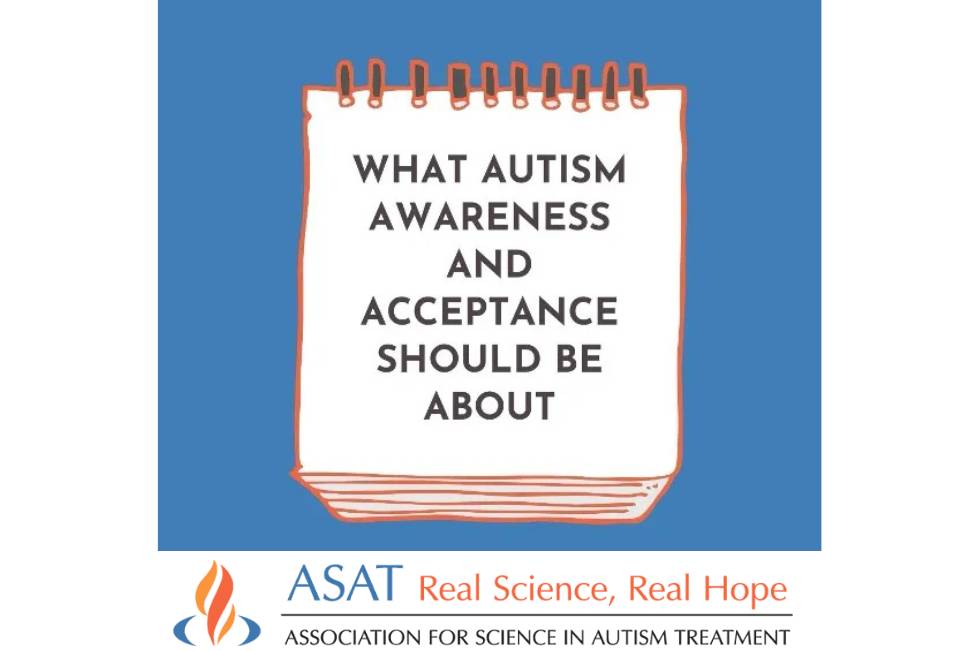What Autism Awareness and Acceptance Should Be About

This article originally appeared in START Connecting in April 2025.
April is here once again - when we await spring flowers and warmer weather. It’s also the month widely recognized for raising awareness and acceptance of autism.
According to Governor Whitmer’s proclamation, it is Autism Acceptance month. Governor Whitmer was quoted in The County Press, “During Autism Acceptance Month, we encourage all Michiganders to learn more about autism, recognize the different strengths individuals with autism have to offer, and support our family, friends, and neighbors with autism. In Michigan, we believe everyone should have the opportunity to chase their dreams and lead rewarding, productive lives.”
We are striving for acceptance, but according to the Association for Science in Autism Treatment (ASAT), there is also a role for awareness. In this month’s START Connecting, we share the ASAT April newsletter, “12 perspectives about what Autism Awareness and Acceptance should be about.”
Why is awareness important?
In the April ASAT newsletter, they state, “Further awareness is wonderful, as detection and diagnosis are necessary first steps to accessing critical help… broader awareness is essential: it promotes early detection, and with early detection, we hope for a relatively clearer course toward effective intervention and ultimately better outcomes” (Celiberti, 2025).
Why is acceptance important?
“…it has always been our hope that the conversation around autism awareness and acceptance would be broadened to focus on directly addressing the obstacles that separate individuals with autism from receiving effective, science-based intervention, to receiving the supports that are needed (across the lifespan), to ensuring that they are just not invited but truly welcomed at the table… And this important work is needed year-round, not just during the month of April when it is popular” (Celiberti, 2025).
What are important perspectives about awareness and acceptance identified by ASAT?
- The autism community has benefited from the rising voices of individuals who identify as autistic and who have expressed an array of views on their lived experiences. Among the many lessons to be learned is the importance of fully including the person with autism in goal selection and intervention choices and any and all decisions in between.
- Respect for divergent views is the soil in which the autism community can grow so that every person with autism can obtain the experiences and help needed to live their best lives. Some light it up red, some light it up blue, some say a person with autism, some say autistic person and it is all OK.
- There is tremendous diversity in individuals with autism, with respect to strengths, challenges, and needs, no one individual has the experience and authority to speak for all, particularly when we are considering individuals with ASD who require 24/7 support and supervision.
- It is crucial that our efforts in raising autism awareness and acceptance creates a more inclusive and supportive world for all individuals with autism, no matter where they fall on the spectrum.
- While individuals with autism learn and progress across their lifespan, it is widely understood that the earlier intervention begins, the greater the potential for an optimal outcome.
- Every minute of ineffective intervention is one less minute spent accessing effective intervention.
- Administrators and program leaders need to take responsibility for identifying training opportunities that further their staff’s competence with evidence-based practice. Additionally, they should make sure their staff receives the support needed to sustain these efforts and to continually engage in data-based decision-making.
- Ensure we are truly preparing young people with autism for decades of life as an adult by harnessing strengths, considering cultural, linguistic, and community factors, and maximizing assent.
- The autism community will be better served if we all made a commitment to the following notion: We want to be more accepting today than we were yesterday, but not as much as we will be tomorrow.
We encourage you to read the full article to access more ASAT perspectives and many resources.
Written by: Amy Matthews, PhD, BCBA, Project Director
Resources:
Celiberti, D. (2025). What autism awareness should be about. Science in Autism Treatment, 22(4).
